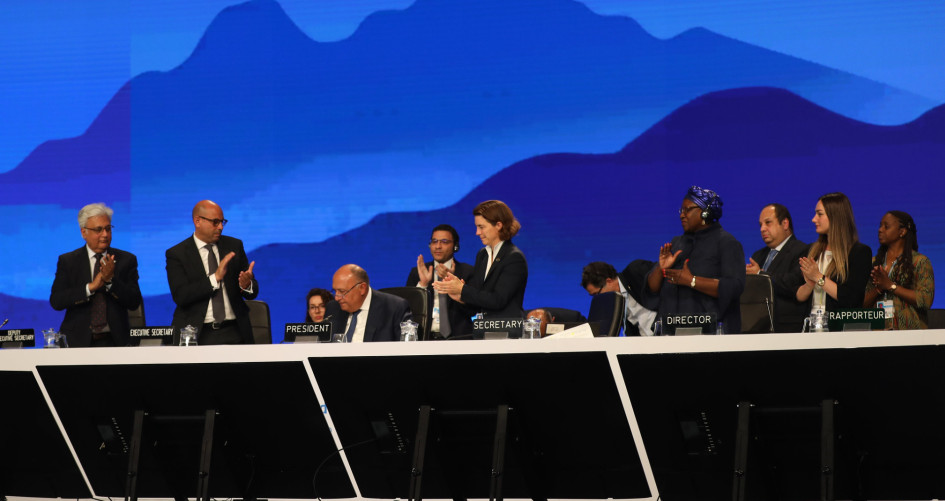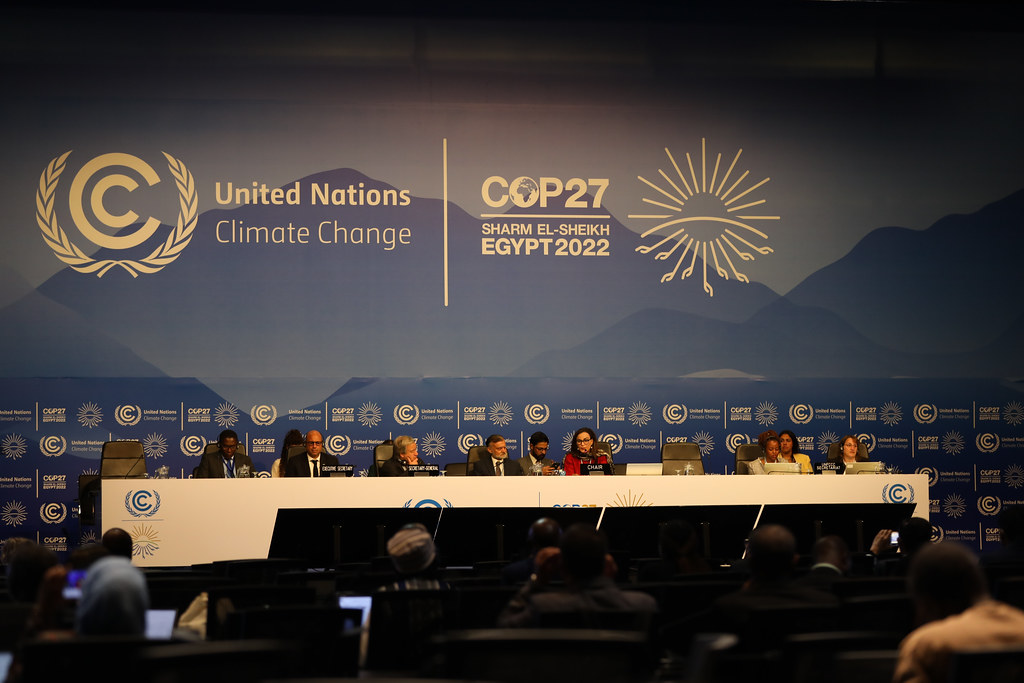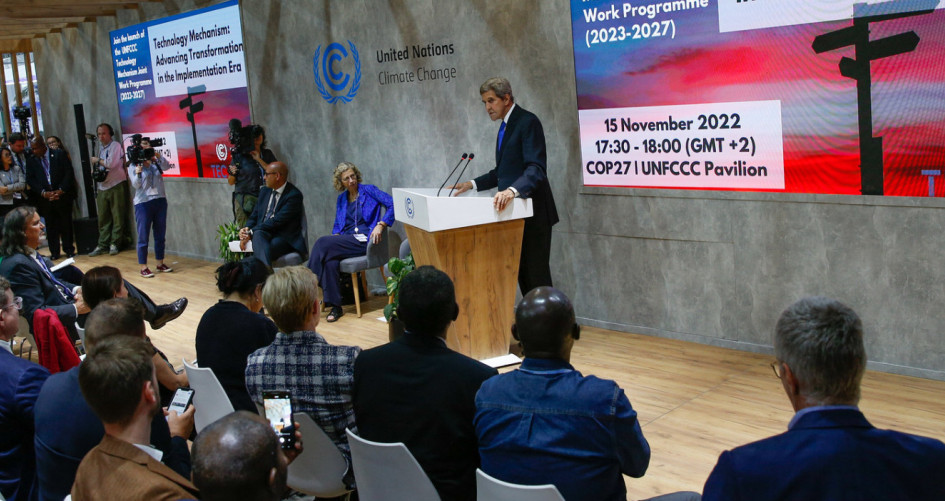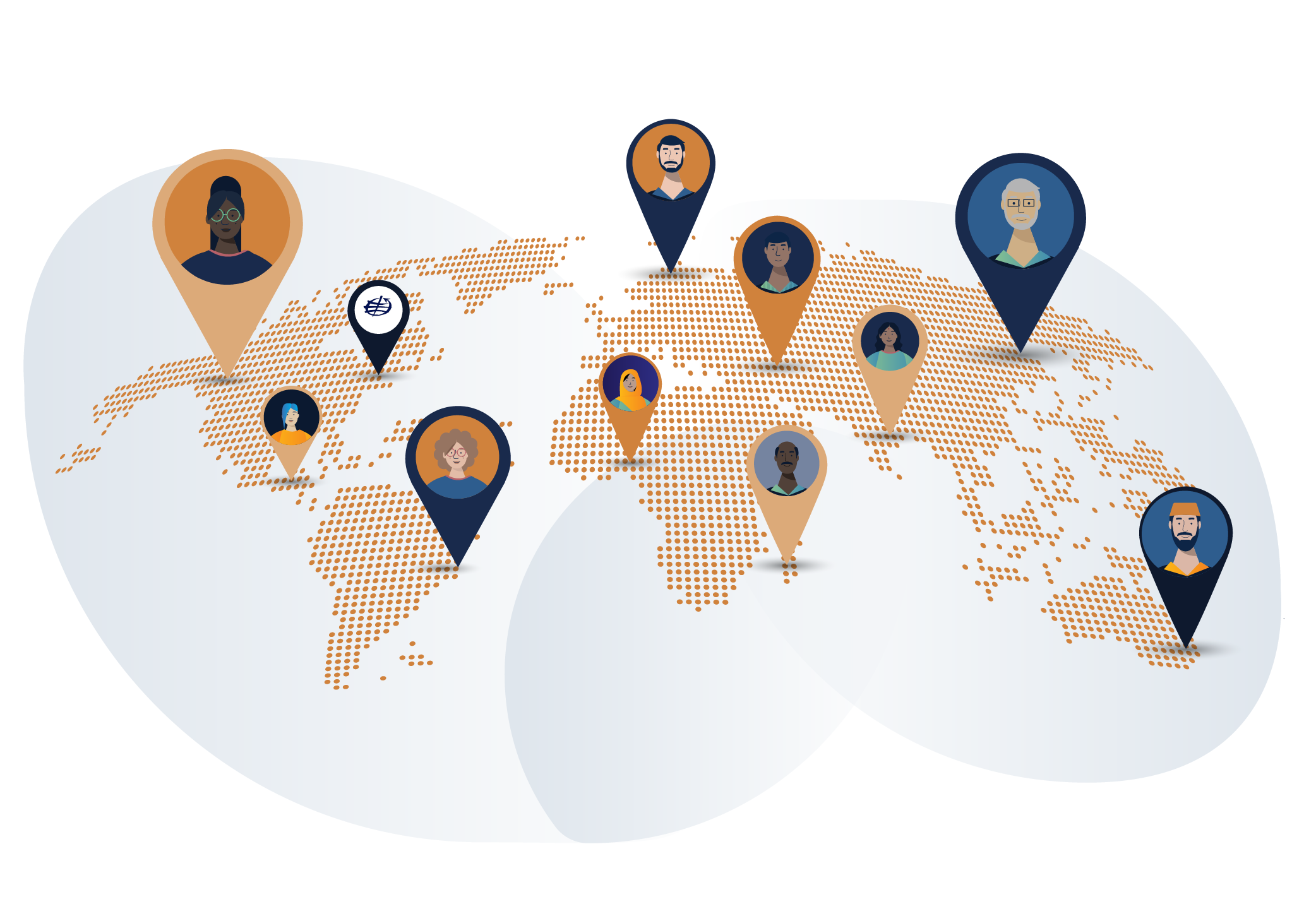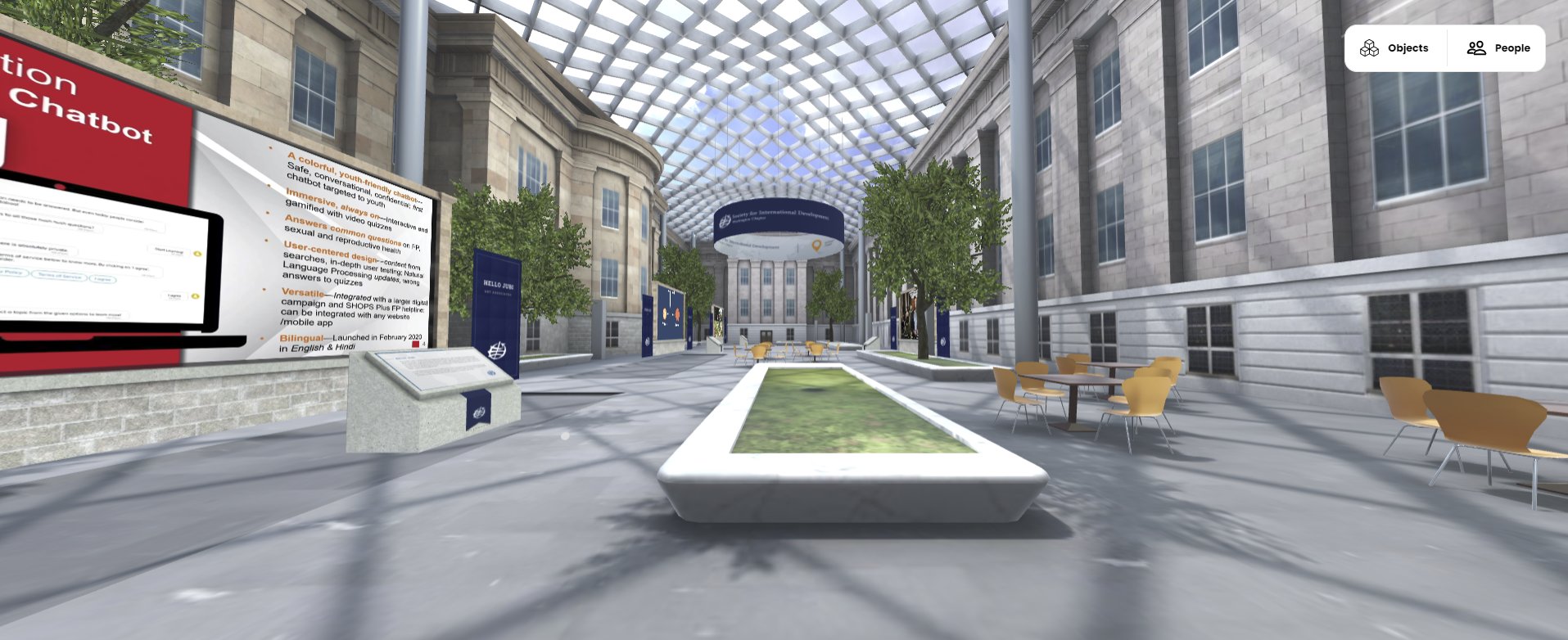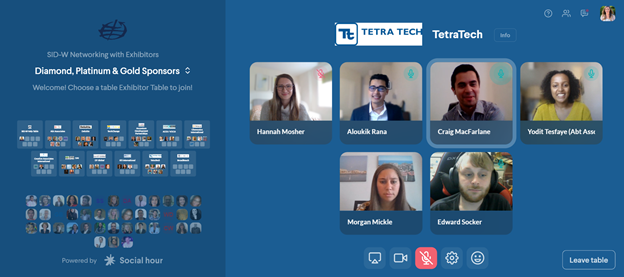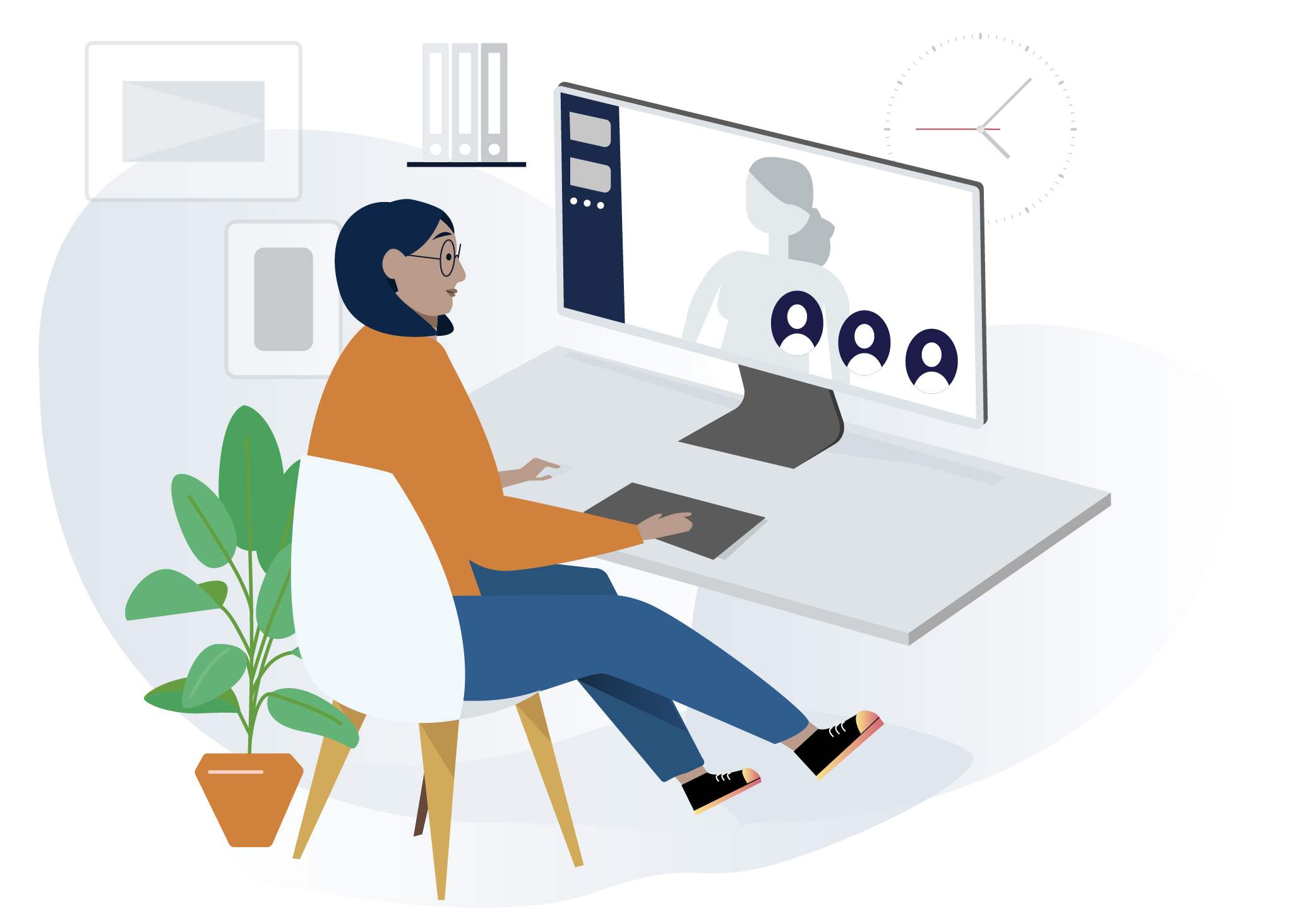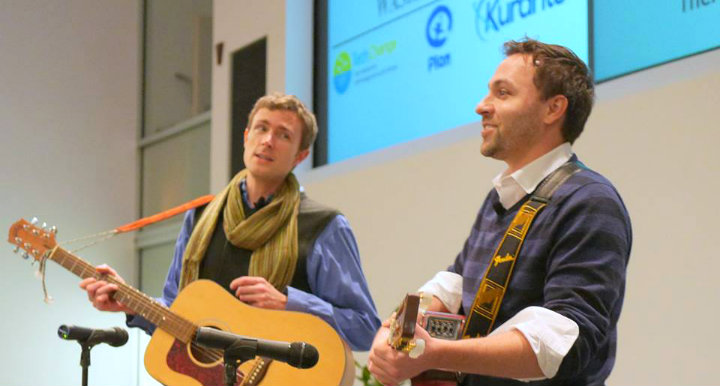By: Emma Sakson
Delegates from all over the world have returned home after attending the 27th Conference of the Parties of the UNFCCC, or COP27, which was convened in Sharm El Sheikh, Egypt over the last few weeks. The first African COP since 2016 brought government representatives, climate activists and advocates, lobbyists, and policymakers together to hash out the details of an ambitious agenda to translate climate commitments and pledges into collective action towards our shared future.
Conveners came into a challenging, tense situation in Egypt, as the legacy of broken promises from COPs past loomed large, and many wondered whether any real progress could be made on topics that always seem to be a high-priority in name but not action.
At TechChange, we believe in the power of bringing people together to tackle big challenges related to topics that matter. And as someone who is obsessed with convenings, I was curious to see if COP27 would be the opportunity to do just that: tackle big challenges related to one of the topics that matters the most to every one of us on this planet.
While TechChange did not attend COP27 (we were busy hosting our inaugural Frontiers of Digital Development Forum!), we recognize the critical nature of this event and the work that countries, institutions and our partners do to harmonize global efforts to mitigate and adapt to the consequences of climate change.
In the days ahead, we’ll be keeping an eye on the following topics and key agenda items from COP27 to see if this convening can move the proverbial needle:
1. Climate finance must be prioritized
Low- and middle-income countries need more than $2 trillion in annual investments by 2030 to help fight climate change, yet commitments from climate funds are far from enough to fill that shortfall. The low- and middle-income countries most vulnerable to climate change have been vocal about the need for an agreement on loss and damage, or climate reparations, which has always been a somewhat controversial topic in the COPs of years past. In the final hours of COP27, the establishment of a loss and damage fund was agreed upon so that the high-income countries that helped to create the current climate crisis will compensate the countries experiencing the consequences of their actions. While the details of who will contribute and who will receive what from the fund remain unclear, it’s a huge step in the right direction. There are also strong calls to mobilize private capital and reform multilateral development banks to help fill this huge funding gap, but only time will tell if the status quo will actually change.
2. Trust must be rebuilt
Commitments and promises made by high-income countries to lower-income countries have been broken time and again in the past. Countries in the global south are feeling the disastrous impacts of climate change much more acutely than those in the global north, and suffering the consequences of other countries’ action (and inaction). Countries and institutions must prove they are good on their word and take action on their commitments coming out of COP27, or the galvanizing words spoken on stages are nothing but platitudes.
3. Our systems are failing, and quickly
As countries struggle with their own unique problems and pressures, the systems we have built, at a micro and macro level, are failing. Conflict, such as the war on Ukraine, have destabilized energy and food systems, and the COVID-19 pandemic continues to wage war on health systems globally. Natural disasters, such as the horrific floods in Pakistan and the drought in Horn of Africa, have taken countless lives and wreaked havoc on communities. The humanitarian system cannot support the needs of refugees, IDPs and human migration at large. We need to move quickly and strategically to address the most pressing challenges facing each of these systems, all of which are all feeling the heavy effects of the climate crisis.
***
These are only a few of the critical and multifaceted challenges discussed at COP27, but also some of the most pressing. As more convenings related to the climate crisis are organized in the weeks and months ahead, we’ll see if real progress on these issues is made and if the power of convening at COP27 can bring us closer to the future we are working towards.
